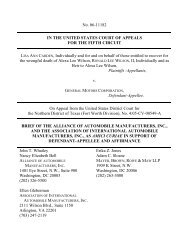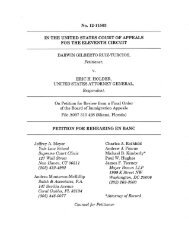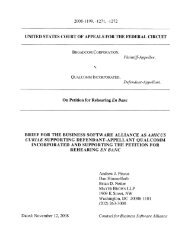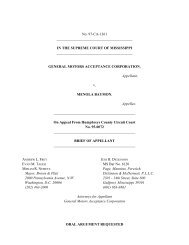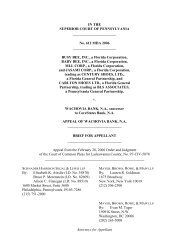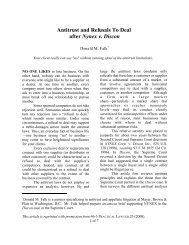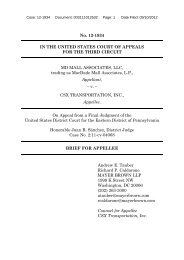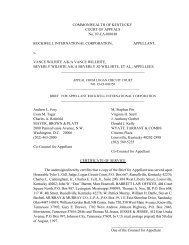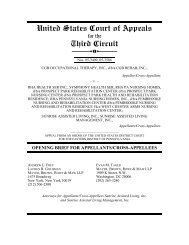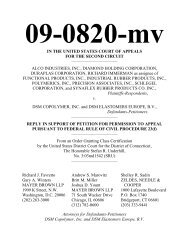No. 5-99-0830 IN THE APPELLATE COURT OF ... - Appellate.net
No. 5-99-0830 IN THE APPELLATE COURT OF ... - Appellate.net
No. 5-99-0830 IN THE APPELLATE COURT OF ... - Appellate.net
You also want an ePaper? Increase the reach of your titles
YUMPU automatically turns print PDFs into web optimized ePapers that Google loves.
the same shortcut, arguing — just as plaintiffs did in this case — that ICFA could be applied<br />
to Amoco’s conduct nationwide because Amoco was headquartered in Illinois and the<br />
allegedly false advertising campaign at issue in that case was conceived in and disseminated<br />
from its headquarters. The Fourth District rejected that argument as a matter of law, holding<br />
that ICFA was not intended to apply — and could not constitutionally be applied — to outof-state<br />
transactions affecting non-Illinois citizens. As explained in greater detail in Part<br />
III(A)(1) below, the Fourth District correctly held that ICFA was limited, by its terms, to<br />
consumer transactions that occurred in the State of Illinois, and that Illinois “has no authority<br />
to regulate out-of-state transactions affecting non-Illinois citizens, such as the purchase of<br />
gasoline, and has no interest in doing so.” Oliveira, 311 Ill.App.3d 886, 726 N.E.2d at 61.<br />
The same analysis applies here. Illinois has no authority to regulate insurance<br />
transactions that take place in other states and affect only non-Illinois consumers. By<br />
contrast, other states have a critical interest in making sure that their own insurance and<br />
consumer fraud laws are applied to insurance transactions that take place in their own<br />
jurisdictions and involve their own citizens. Thus, if a Massachusetts consumer had brought<br />
an individual consumer fraud suit against State Farm challenging its specification of a non-<br />
OEM part in Massachusetts under a Massachusetts policy form, there is no doubt that the<br />
only proper law to apply would be the Massachusetts consumer protection statute. See Mass.<br />
Gen. Laws ch. 93A. That result does not change simply because plaintiffs’ counsel chose<br />
to bring this case as a class action. See Cimino, 151 F.3d at 312 (class certification does not<br />
alter the “identity of the substantive law” governing the plaintiffs’ claims). Because the<br />
application of differing state consumer fraud laws destroys any conceivable claim that<br />
-63-



